Updated: May 11, 2016
This is Planet Nerd, you're looking at Planet Nerd, o-oh-o. If you don't get this reference, you need to pimp up on your Duran squared skills. But seriously, here we are, two years after Microsoft finally gracefully ended the support for Windows XP, and about an equal amount of time since I wrote my long live XP article.
In that piece, I highlighted all the pros and cons of staying with an old, outdated operating system. And to be clear, yes, you SHOULD move on to newer versions, if you can, provided you have the hardware and finance and business means to do so. But if you have to still keep on using XP, or you refuse to budge, or whatever, then the risks and pros and cons of your choice still remain. Outlined in April 2014, retested in April 2016. What could a brave and bored XP user expect two years after the death mark? Let us elaborate.

Applications, applications, applications
The operating system - 'tis but a shell for your stuff to run. And this is the one hugely relevant aspect of Windows XP usage. Moving on to new versions should be tied to your money and work and critical software compatibility, but also 64-bit support and the ability to run relevant, maybe modern programs. Drivers, graphics, hardware, CPU features and all that, of course.
Now, if we put the hardware piece aside, there's really no point using an operating system that does not have software built for it, nor plugins, nor anything else. So how well does XP fare in this regard? Well, two years after it was axed - and please do remember I'm saying this nicely, with no rancor toward Microsoft; they have given XP more than any other vendor ever gave a home product, and it was time to let go, anyhow - two years after it was axed, it still runs most modern desktop applications.
Firefox, first. The old browser was at version 27. It updated to 43 then 45 without any problems. I was able to install extensions and plugins without any problems. Youtube runs quickly and smoothly, and this actually means HTML5. No errors, no bugs, no prompts. The browser is lithe and fast.
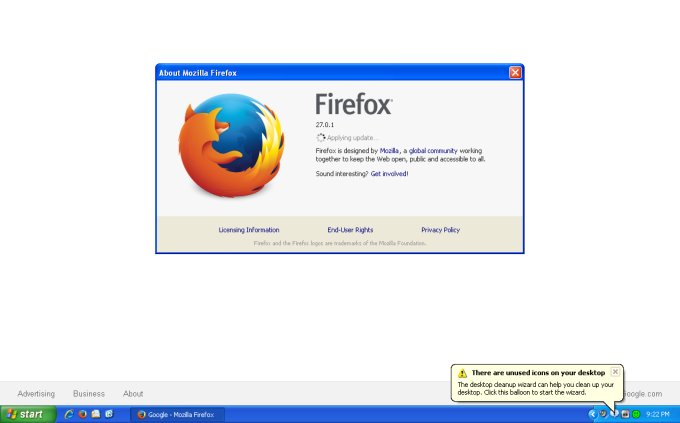

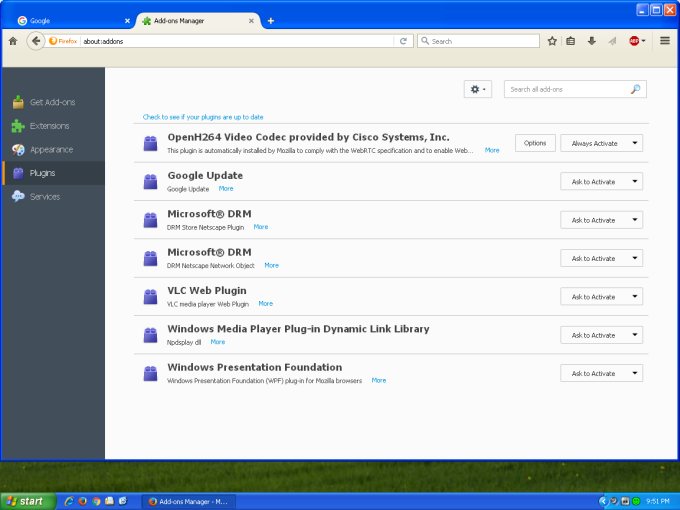

Then, I tried Chrome. Here, we have a conundrum. Google has ceasing support for Chrome last month, and that's partially one of the reasons I wanted to test the browser and see how it works. Apart from the yellow warning, it was all good. Fast, smooth, no issues. But the question is, how will it behave in the future. We shall see.
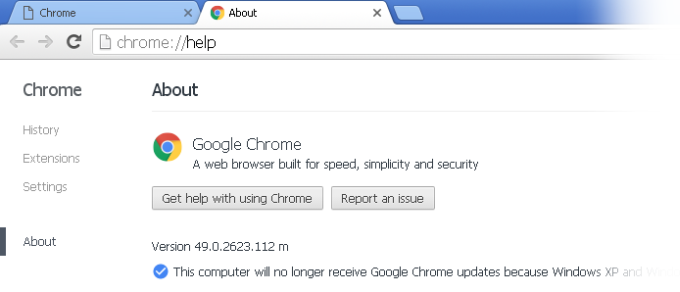
I then installed VLC and LibreOffice 5.1. Both these programs run well, and again, there do not seem to be any issues with this outdated operating system. Perhaps it is not the prettiest, and the search may feel a little clunky after using Windows 7 onwards, but overall, it does what most people may need. Your biggest limiting factor is Internet Explorer, which remains at version 8 and cannot be updated. And it is slow.

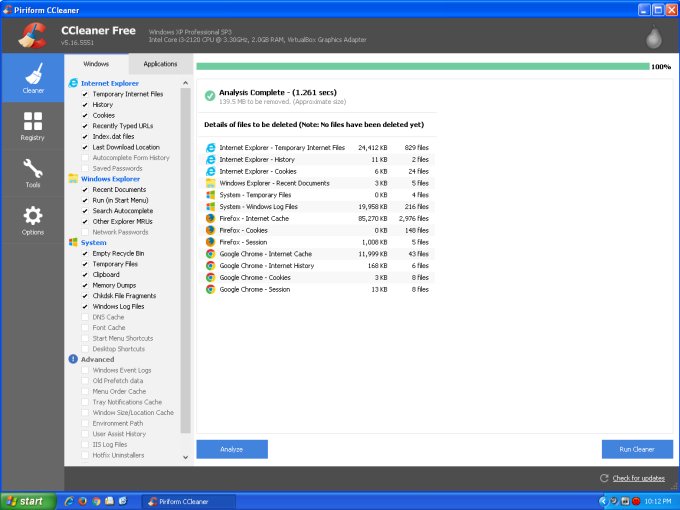

Apart from that, performance was really good. Now, this is a virtual machine, but it still runs quickly enough to not feel like a relic. Again, your big limiting factor will be the actual usability and ergonomics. Some of the more modern versions of Windows definitely have an improved work flow. But XP does not suddenly look like something from another era.

Internet Explorer 11 and such
I did try, for the pure futile sake of it, to find a way to up my Internet Explorer. To no avail. However, I did encounter a weird bit of information. On the Microsoft Internet Explorer system requirement page, it reads: If you want to run IE11 on your PC, here's what it takes, and then it lists Windows 8.1. Wait, what. Is this a recommendation or a necessity? What about Windows 7, because it sure does run IE11 like a champ. I am sure the legal side of it is well covered by the phrase here's what it takes, but I can't quite escape the feeling it is worded badly or even misleading. Windows 7 is still a fully supported operating system. Wattup guys?
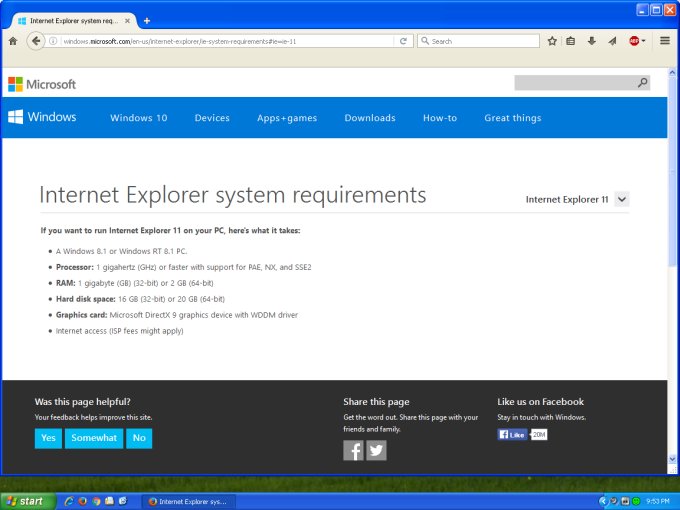
And what about security?
Ah, as always, the most over-ultra-extra-hyped thing in the industry. Nothing breeds headlines and profit like sensationalist headlines. And in this case, all the talk about how your virginity will disappear come the end of Windows XP support is equally spectacular. But the thing is, there's nothing too special about this really.
In the original article, I outlined the use of two really cool pieces of software to achieve robust, plug-n-play security. First, we installed SuRun, which mimics the sudo mechanism for Windows XP, and it's the dog's bollocks, and then we limited our account. Running with a restricted user is an excellent security mechanism, and when combined with SuRun, it really provides for a seamless, trouble-free experience. I have - still - not encountered any problems using the program, and all the applications and tools install and run correctly.
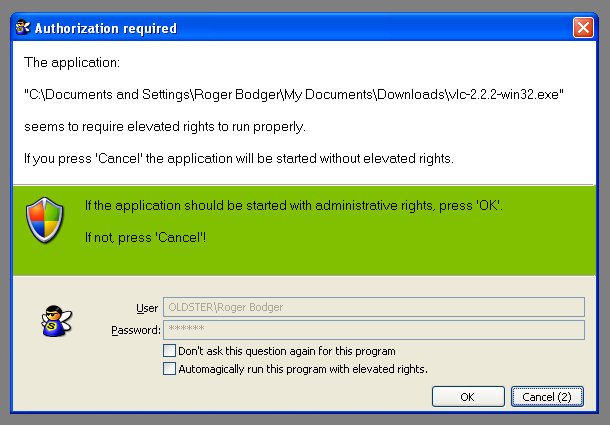
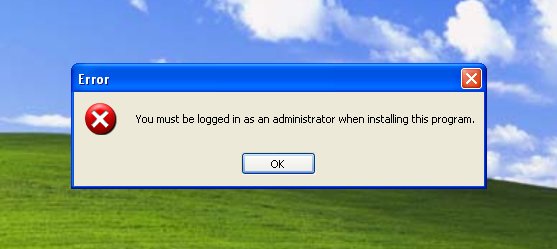
Then, we also have EMET, which again, is the dog's bollocks, a superb, superior security solution from Microsoft. Rather than whitelisting or blacklisting tools, the program just kills anything that misbehaves from the code execution perspective, hence mitigations. It's all about software doing illegal instructions and operations, and in this regard, EMET does not differentiate between good and bad, just correct and incorrect. Bob's your uncle.
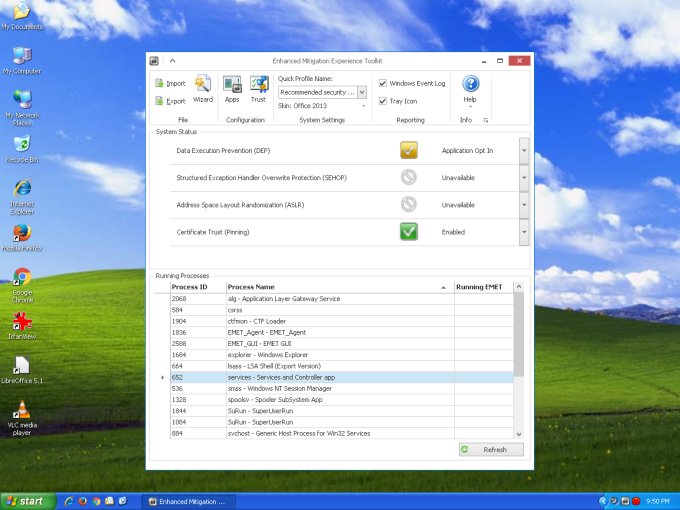
More reading
If you care for some past musings - and still relevant advice:
Windows XP death in more detail
What to do with Windows XP after it dies?
Conclusion
This article may be wrongly interpreted as a desperate attempt by an old git to clutch to the vestiges of the past and blah blah. Boring. Not at all. I do not use Windows XP on my production systems, and have moved on, smartly and wisely. And I've done that without succumbing to nonsense stories about malware and similar new-world crap. In other words, new hardware and 64-bit support. That's it. Usability has not improved after Windows 7, and so far, it remains the sweet spot of technology and practicality.
The other side of this story is - Windows XP. It is a thing of the past, but so are you, and that does not mean you are useless. If you cannot afford to move forward, for whatever reason, you can still continue using this old operating system. Availability of software is still pretty decent, and it should remain so for another couple of years or so. All in all, things are not as bad as they sound. And you also have the necessary security tools to keep up with the Internet game, if needs be. There we are, end of report, I hope you enjoyed it as much as I did. Or more. Hopefully more.
Cheers.